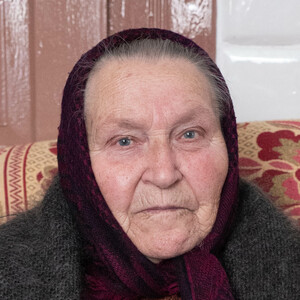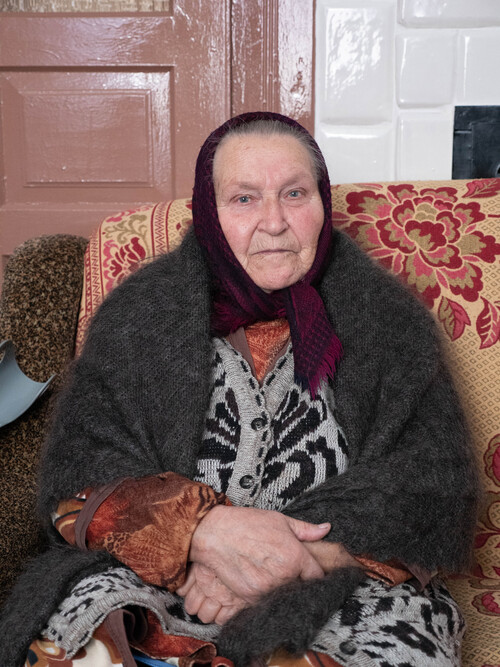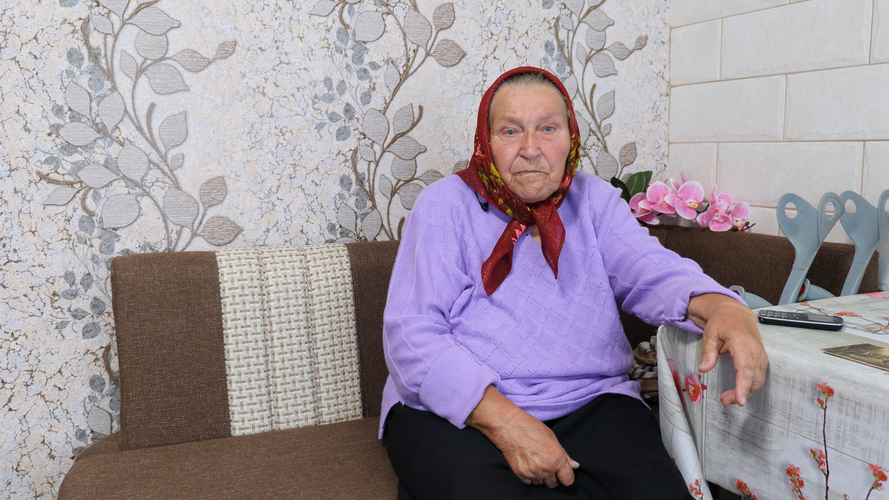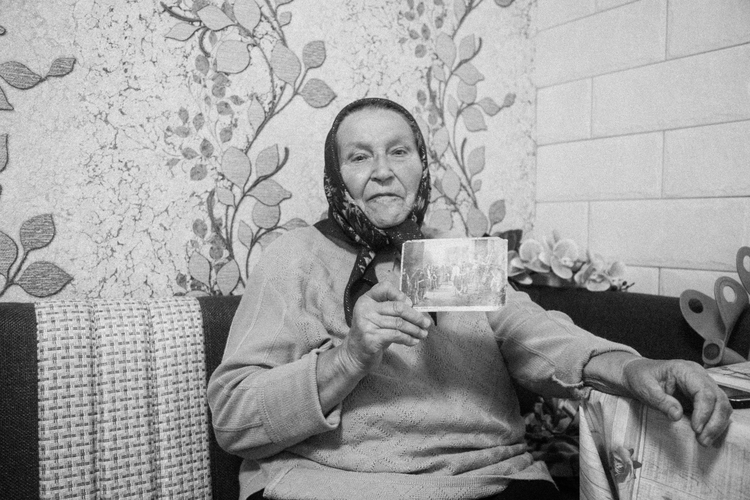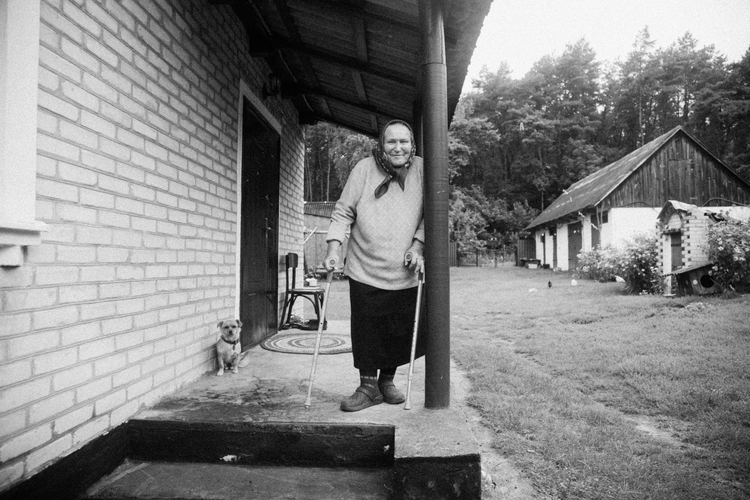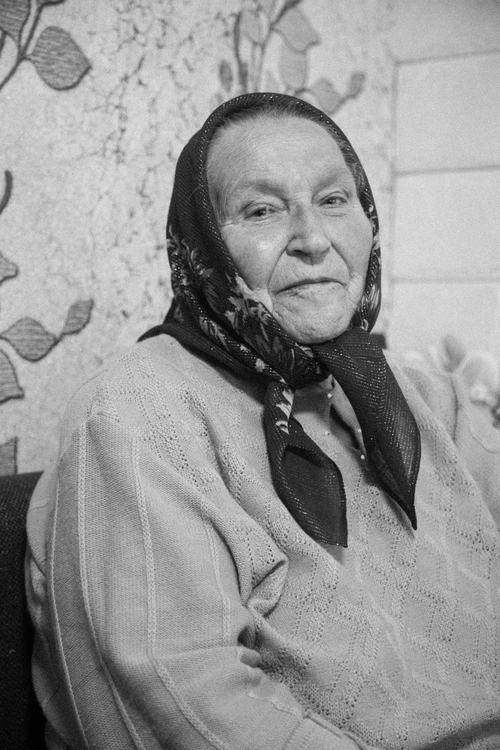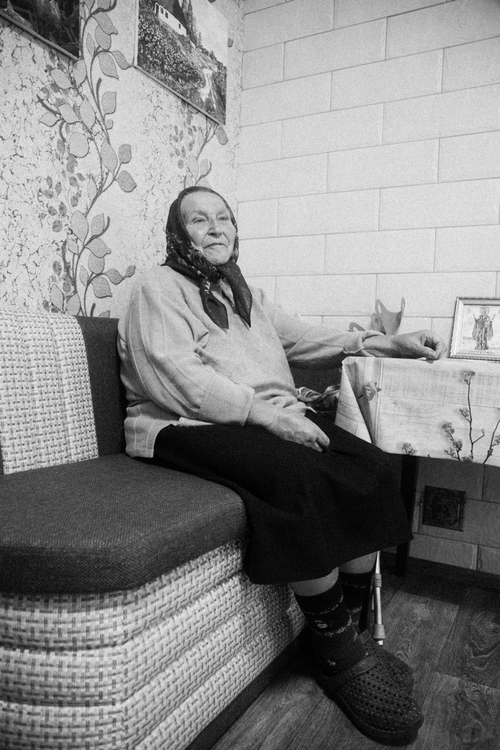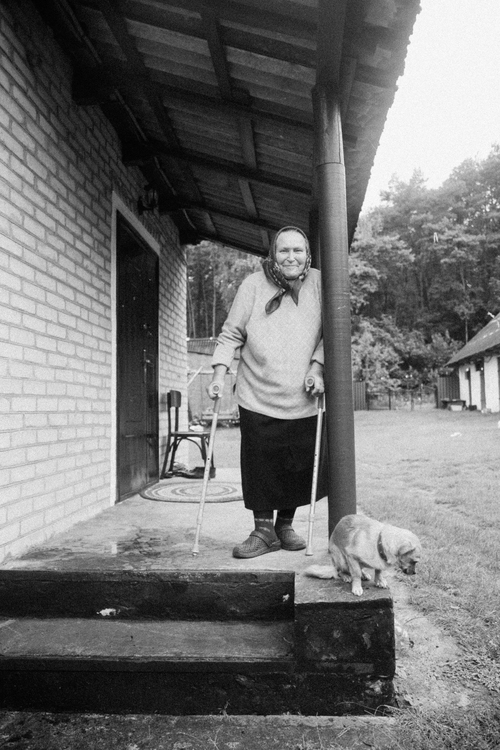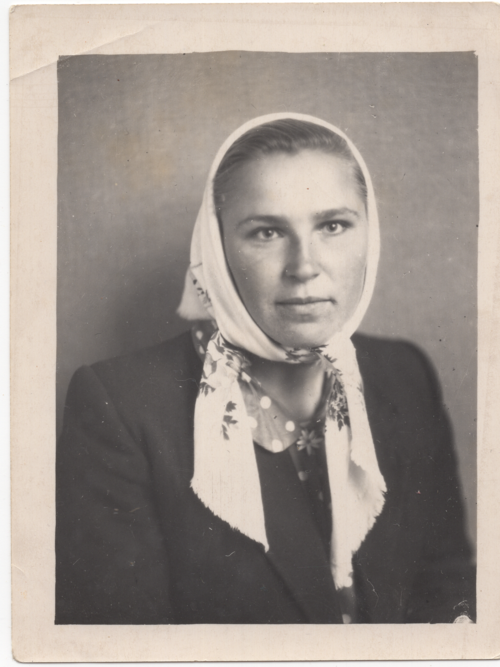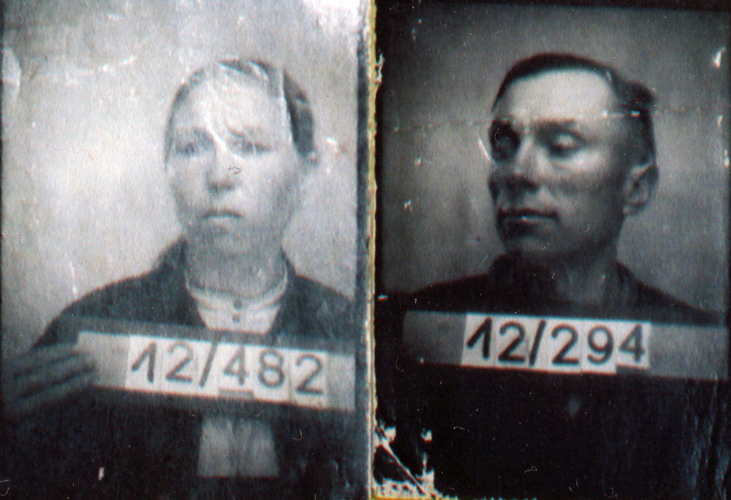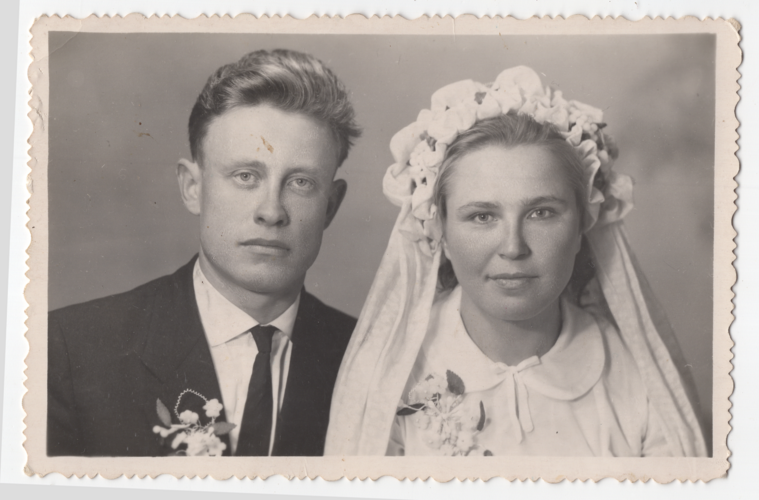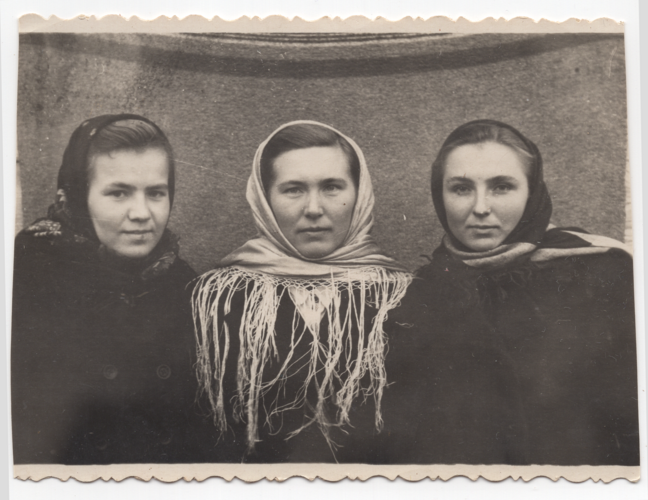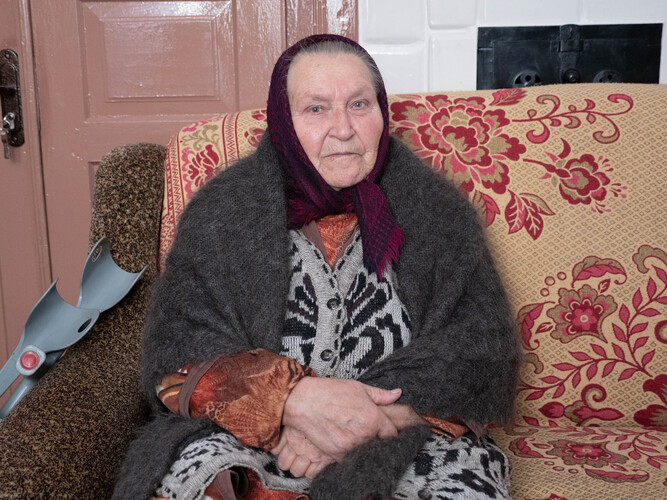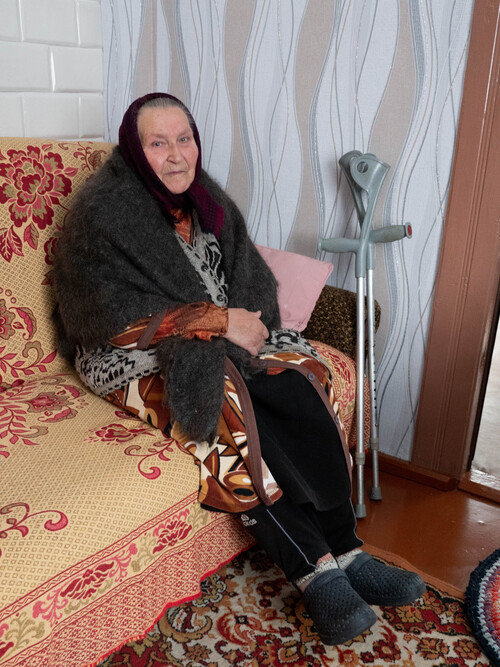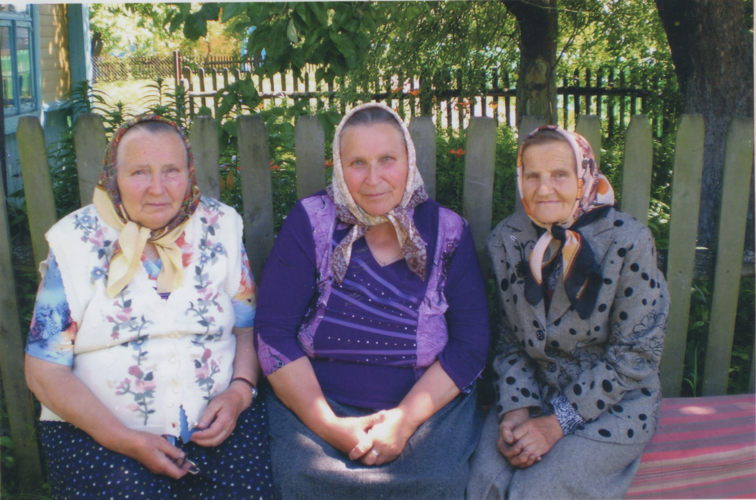Maria Tymoshuk (née Bozhko) was born on January 14, 1940, in the village of Khotsun in the Lyubeshivskyi (now Kamin-Kashirskyi) District of Volyn Oblast. Her parents, Mefodii and Hanna, were peasants; aside from Maria, they had three other children: Ivan, Stepanida, and Nadia. Maria’s uncle on her mother’s side served in the Polish army at the beginning of World War II and was captured by the Germans. According to Maria, he ended up in the Auschwitz concentration camp.
During the Nazi occupation of the Soviet Union, the family helped Jews escape; Maria recalls that her father and older sister used to ferry them to another village on horses. The family did not remain unscathed from the fighting – their home was hit by a bomb and burnt to the ground. In 1943, the Nazis carried out an operation in Maria’s village to punish the residents for aiding the partisans. During this operation they deported many villagers to Germany for forced labour, including Maria’s family. They first arrived in Erfurt, Thuringia, and were subsequently taken to Orlamünde, where they were placed in a camp for foreigners. They were later transferred to the city of Schleusingen, where Maria’s parents and older sister Stepanida were put to work at the munitions’ factory Zieh und Stanzwerk GmbH. Even four-year-old Maria and her six-year-old brother were forced to work at the factory for several weeks - sorting live ammunition.
There were two forced labour camps near the factory, and Ukrainians, Italians, Russians, Czechs, Poles, and Belarusians were interned there in wooden barracks. It was mandatory for all forced labourers from Eastern Europe to wear factory clothing, an “OST” patch, a number, and medallions: “They had a plastic legend with information about who worked in which workshop - green, red, and yellow - so that the guard knew who went to which workshop.” Maria remembers that they were not well-fed in the camp and had to survive on a diet of chowder, rotten rutabaga, and stale brown bread. When her parents returned from work in the evening, they usually received a pot of some kind of soup. One German woman sometimes fed children with bread crumbs - it felt like a holiday for them. Maria still keeps a small icon the woman gave her and her brother as talismans.
The hygienic conditions in the camp were horrible and disease ran rampant. In June 1944, Maria, her brother, and her younger sister all fell ill with typhus. Nadia could not recover and died. She was only 11 months old. She was buried at the cemetery in Schleusingen. The camp was also full of other dangers for the children being held there; Maria remembers how one of her campmates died, as the children were playing near the water tower: “There were soldiers with machine guns, but they had no dogs, and they warded us off: “Kleine, zurück” (“Go back, little ones”). But we were children. How could we listen to them? So, what did they do? They electrified the wire. One of us was killed, so we didn’t go there anymore”.
At the end of the war, Schleusingen was almost completely destroyed. Maria has a memory of girls from the camp running into the city’s bombed-out stores and looting things - one of them brought Maria a whole pile of children’s clothes.
Shortly before war’s end, Maria’s family was separated: her father was taken to dig trenches and the munitions’ plant was closed in April 1945, as the American troops approached. Forced labourers were afraid that they might be shot. Maria hid with her mother and siblings in the forest for several weeks.
After the family was liberated, they received an offer to move to America – however, Maria’s older sister declined. The family then set off back to Ukraine on foot and by cart. When they stopped to spend the night in Lviv, they were robbed. They had almost nothing left – neither personal possessions, nor documents – only German food stamps for bread, which the family then burned. When they finally reached their village of Khotsun, there was nowhere to live, and they were forced to move in with relatives. Maria’s father returned a month later, and the reunited family settled down in their grandmother’s house in the village of Dolsk.
Upon their return home, the family fell upon hard times. Maria’s parents fell ill and the children had to go work take care of the family: “Dad’s leg was crippled, mom’s kidneys also caught a cold, so she was swollen, and she couldn’t do anything. At the age of 10, I already went to work on a collective farm (“kolkhoz”). We had such a children’s section”. When she grew older, Maria went to work in the forestry sector, and at the same time, was able to do schooling on the side. To earn money, she collected berries and mushrooms in the forest during summertime: “We took them (berries and mushrooms) to Belarus, we could exchange them for canvas and other materials, for grandma for a sweater, for me for a skirt, for mom and dad for a shirt.”
Maria continued working in forestry for seven years, before switching career paths multiple times; she worked as a saleswoman in a store, as a warehouse manager, as well as a club manager in her village. Today she is 82 years old and lives in the Kulchyn, Kovel district, Volyn Oblast. She has four children. Her granddaughter works as an evacuation train conductor during the Russian-Ukrainian war.
Written by Jiyun (Seoul), Lukas (Göttingen), Stefan (Göttingen)
